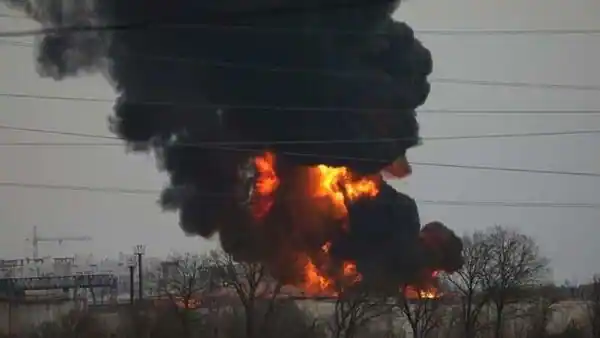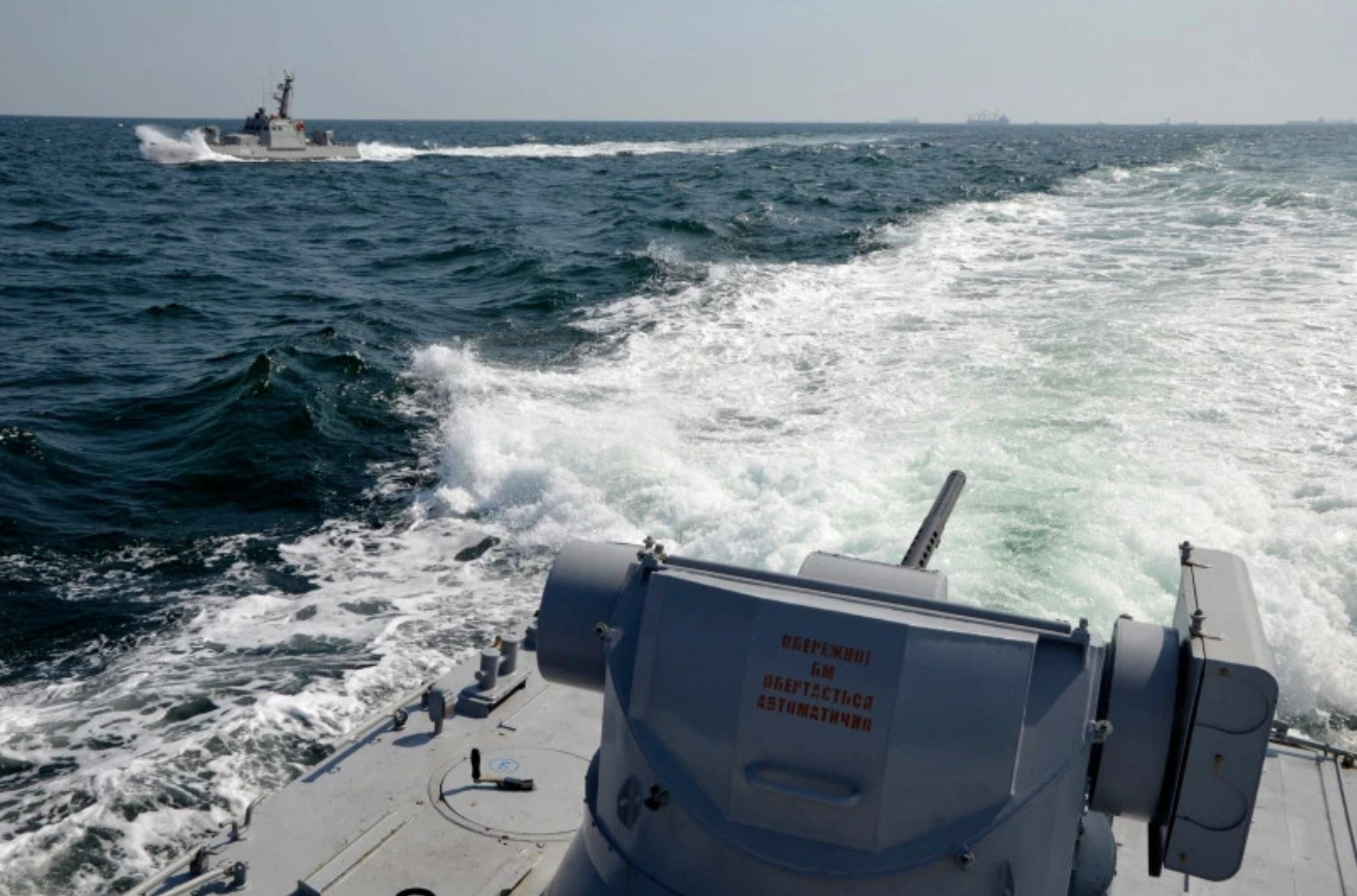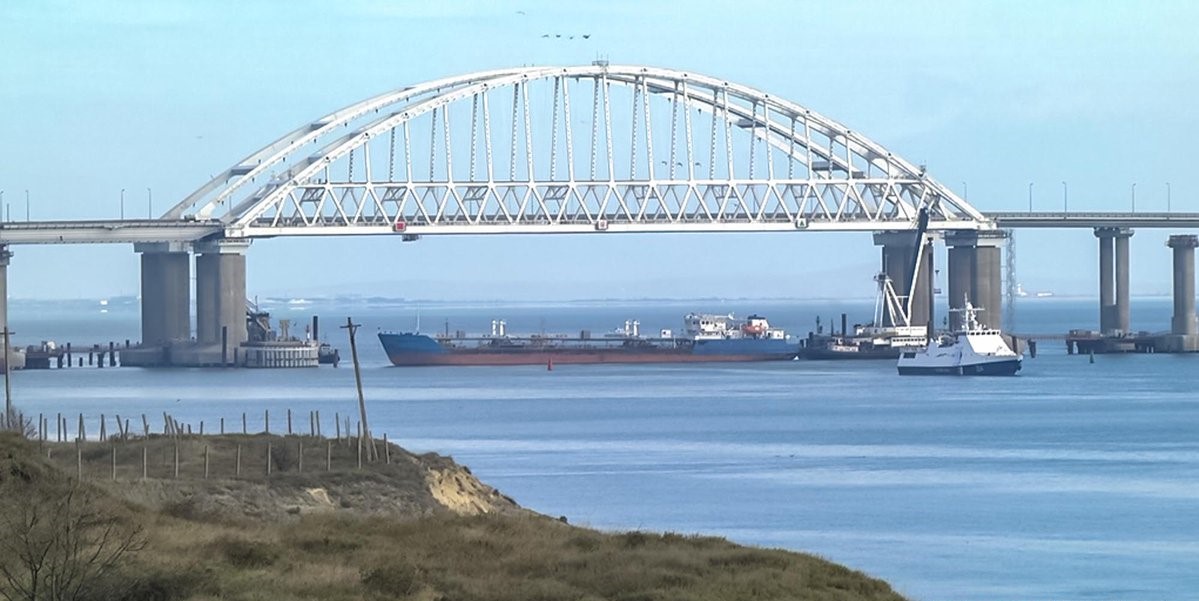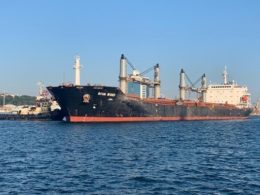International food security takes a hit
The war has also had a global impact. In particular, the Russian invasion has affected international food security. Before the invasion, Ukraine exported roughly six million tons of grain per month to Africa, Asia, and the Middle East. Now, Ukrainian agricultural exports have declined by 80%. Russia has established a blockade on the Black Sea, preventing grain exports to these regions.
According to the US Department of Agriculture, Ukraine is ranked as one of the top food producers in the world. This Eastern European state is ranked sixth in corn production, seventh internationally in wheat production, fourth in barley production, and first in sunflower production. Based on these statistics, it is no wonder why Ukraine is nicknamed the “breadbasket of Ukraine.” It is home to “some of the world’s most fertile land,” and the international community relies on Ukrainian agricultural exports.
But Russia’s war has led to a global food crisis. Should the invasion continue, this will lead to food scarcity in Africa, Asia, and the Middle East.
Kremlin’s food terrorism, explained: How Russia weaponizes famine, again
A dead deal?
Aside from the blockade on the Black Sea, the Russians have been accused of “stealing grain and other produce” from Ukraine. Video recordings from Russian-occupied territories also show Russian soldiers “setting fire to Ukrainian wheat fields.” These Russian actions have further contributed to the global food crisis.
As a result, the United Nations and Türkiye attempted to broker a deal with Russia and Ukraine. During their meeting, Russia and Ukraine agreed to a deal “that would allow the resumption of vital grain exports.” The world celebrated, believing this would help ease the global food crisis. But this was premature. Less than 24 hours after the signing of this deal, the Russians launched an airstrike on the port of Odesa. This has now cast doubts on Russia’s commitment. Many are now skeptical of Russia’s future intentions.
Given the Russian Federation’s inability and unwillingness to observe these deals, the international community must provide Ukraine with the financial, humanitarian, medical, and defense assistance it needs to win the war. With these tools, Ukraine can force the Russians out of the country, thus relieving the international food crisis.
Take, for example, Kherson. During the early stages of the invasion, the Russians quickly occupied this southern Ukrainian province. This fortified Russia’s position on the Black Sea, and it limited Ukraine’s access to this body of water.
https://twitter.com/EuromaidanPress/status/1552489021066170369
“Kherson Oblast will definitely be liberated”
Ukraine’s counteroffensive, however, has been effective. Over the past few months, the Ukrainians forced the Russians out of northern Ukraine. The Ukrainians have also gained ground in southern and eastern Ukraine. According to Ukrainian officials, if the international community continues to provide its aid to Ukraine, then the “Kherson Oblast will definitely be liberated [by Ukrainian forces] by September.” Aside from granting Ukraine additional access to the Black Sea, this would help ease the global food crisis caused by the Russian blockade.
Moreover, the international community should call on Russia to observe a humanitarian corridor in southern Ukraine and the Black Sea. The United Nations should also consider a mission to help export Ukrainian agricultural goods. Establishing these safe maritime shipment routes would help resolve the food security issues caused by Russia.
Growing partisan movement of Kherson Oblast now bombs collaborators
A devastating chain reaction of suffering
Finally, the reintroduction of these food shipments would alleviate global food prices. Currently, the rising rate of agricultural products has taken a toll on developing nations and vulnerable communities. Establishing secure waterways and increasing the shipment of Ukrainian agricultural goods would reduce food prices as there would no longer be a scarcity of goods. This would allow consumers to purchase these agricultural goods at a more affordable rate.
Overall, the Russian invasion of Ukraine has been devastating. Tens of thousands of Ukrainians have died, and several cities and villages have been destroyed. Russian aggression has also threatened global food security, and it has caused an international food crisis.
But not all is lost. If the international community pressures Russia to release Ukrainian agricultural products, and if the Russian blockade ends, then this would help alleviate the current global food crisis. This would prevent starvation in numerous parts of the world, and the international community has the power to enforce this outcome. Therefore, it is time to put pressure on Russia to end the Black Sea blockade and the war. Otherwise, the continuation of Russia’s unprovoked war will lead to an international food crisis.
Related:
- Kremlin’s food terrorism, explained: How Russia weaponizes famine, again
- Soviet-era repression, deportation & famine wiped out a third of Ukraine’s population
- See which countries recognize Ukraine’s Holodomor famine as genocide on an interactive map
- Stalin’s terror famine killed Ukrainians at twice the rate of other nationalities, HURI study says
- On the verge of despair yet waiting for liberation: life in Kherson after Russian occupation – report
- Growing partisan movement of Kherson Oblast now bombs collaborators








